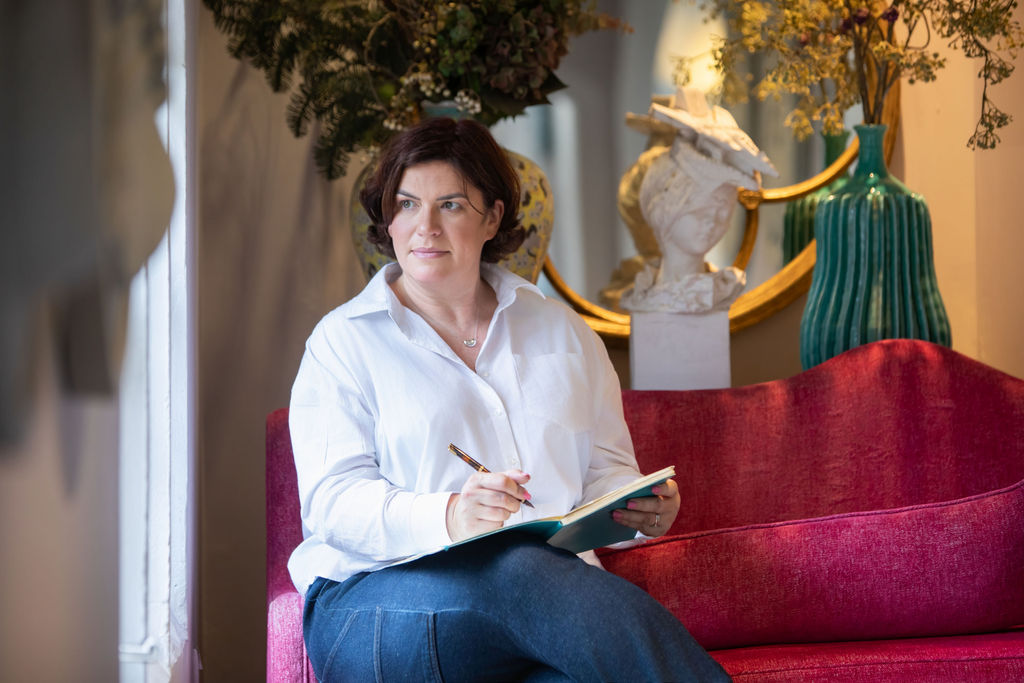Grief In The Workplace
CREATING COMPASSIONATE PLACES TO WORK

Training

Consultancy

Speaking
Grief Is Universal
Life is messy and full of loss. Grief is universal, and yet, somehow, we are expected to leave our grief at the door when we come to work.
Two million people in employment suffer intense grief every year, and over half say their performance is affected. Many find things so difficult that they leave, either for another job or withdraw from the workforce entirely.
Grief refuses to stay at home
Imagine if we treated grief and bereavement as an everyday stage of life that needed our understanding and support.
Armadillo Life delivers training and advice for managers and teams, giving them the tools to provide practical and effective help to their grieving colleagues rather than mere sympathy.
Training
60 and 90 minute online
training for managers and colleagues
Consultancy
Bereavement policies,
manager scenarios and advice
Speaking
Keynote speaker,
podcasts, articles and interviews

Grief Matters
In the last twelve months 24% of working-age people, 7.9 million employees, have experienced a bereavement.

Two million people in employment suffer intense grief per year

58% of all grieving people felt their performance at work was affected by their grief months after the death of a loved one

56% of employees would consider leaving their employer if treated badly following a bereavement

56% of employees would consider leaving their employer if treated badly following a bereavement
Grief profoundly affects our performance, mental health, and overall wellbeing. Unaddressed, it can lead to absenteeism, burnout, and resignations.
By raising awareness and providing effective support throughout your team, you can create a workplace culture that values empathy, reduces stigma, and enhances productivity.
What do you do with a colleague who is grieving?
Our colleagues are often the people we spend the most amount of time with. It doesn’t matter how good the HR department is when it is our team by our side every day.
Every one of us will experience grief and bereavement at some point, and some people around us will suffer devastating losses. Yet, we still feel uncomfortable talking about it and being around people who are grieving.

We don’t understand

We don’t know what to say

We worry about getting it wrong
Without informed compassion and kindness, it can leave those already struggling feeling more isolated and alone.
Compassionate leadership
Equip your teams with the understanding and tools needed when grief strikes
Give power to your policies
Remind your team of the resources available through your Employee Assistance Programme
Improve productivity & results
A supportive team improves productivity, absence rates and retention

Grief In The Workplace Training
Our training sessions are designed to normalise grief and encourage open, frank conversation.
Our training is designed to open up conversations about grief in the workplace and enable everyone to better support employees, colleagues, and friends.
It removes much of the stigma and misconceptions around grief and gives people insight and understanding they are often afraid or unwilling to seek out.
It will include honest first-hand experiences of grief, what helped, what didn’t and how we can create a more supportive, empathetic culture that will benefit us all.
It has also been created with input from therapists, GPs and bereavement experts, with follow-up support resources provided.
I’m based in Rugby, Warwickshire but can deliver online training nationally and internationally. Rugby is also very handy for the motorway and train network, so in-person training can be delivered in most areas of the UK.
About Louise

I have been training organisations for the past ten years on subjects ranging from marketing and branding to kids’ online safety. I was not a stranger to grief, having suffered the loss of both of my parents, six years apart, whilst I was still in my twenties.
However, in 2019, my 13-year-old son Fred was diagnosed with Acute Lymphoblastic Leukaemia. He died ten months later. Since that time, I have spoken and written extensively on grief, both online and for newspapers, television and podcasts.
I am passionate about improving our understanding and comfort around grief so that we can support ourselves and others.
